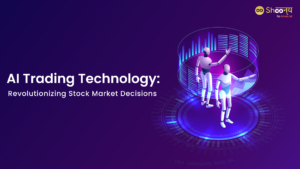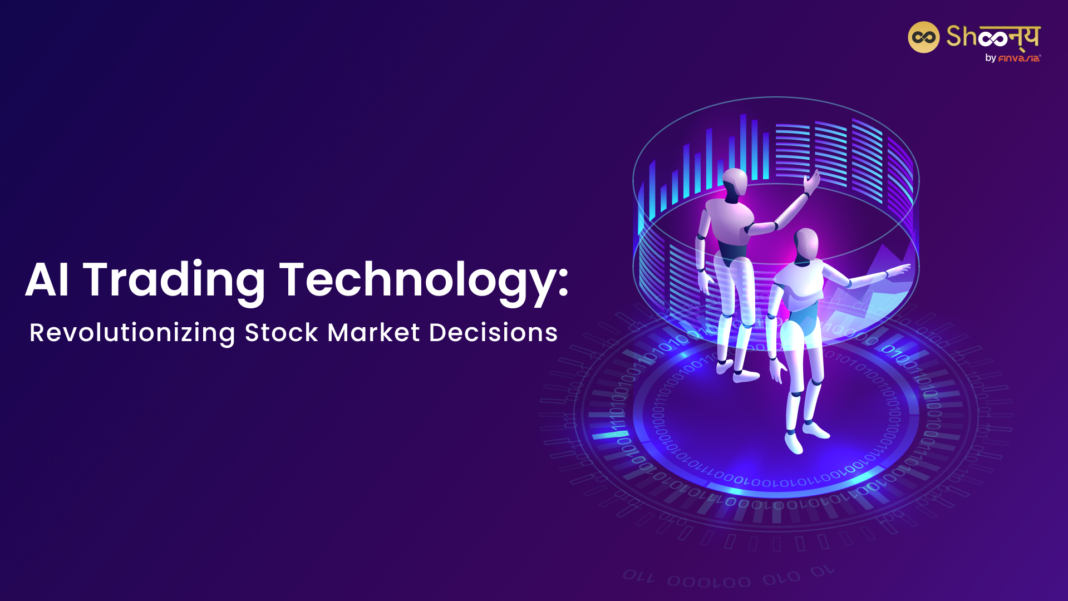
In recent years, artificial intelligence (AI) and machine learning (ML) have transformed numerous industries, and the stock market is no exception. These advanced technologies are not only enhancing the accuracy of stock market predictions but also reshaping investment strategies and trading practices. This article explores how AI and ML are revolutionizing stock market predictions and what this means for investors.
Understanding AI and Machine Learning in Stock Market Predictions
Artificial Intelligence (AI) refers to the capability of a machine to imitate intelligent human behavior. Machine Learning (ML), a subset of AI, involves training algorithms to learn from and make predictions based on data. In the context of the stock market, AI and ML algorithms analyze vast amounts of financial data, identify patterns, and predict future market movements.
The Role of AI and ML in Market Analysis
- Data Processing and Analysis
Traditional methods of stock market analysis often involve manual processing of data, which can be time-consuming and prone to errors. AI and ML, however, streamline this process by handling enormous datasets quickly and accurately. Algorithms can process financial statements, historical price data, economic indicators, and news articles to provide comprehensive analyses.
- Pattern Recognition
One of the key advantages of AI and ML is their ability to recognize complex patterns in stock price movements. Machine learning models, such as neural networks and support vector machines, can detect subtle patterns that human analysts might overlook. These patterns can be used to forecast market trends and identify potential investment opportunities.
- Sentiment Analysis
AI-powered sentiment analysis tools assess the tone and sentiment of news articles, social media posts, and other textual data to gauge market sentiment. By analyzing public opinion, AI can predict how market sentiment might influence stock prices. For instance, positive news about a company might lead to a rise in its stock price, while negative news could have the opposite effect.
Benefits of AI and ML in Stock Market Predictions
- Increased Accuracy
AI and ML models are capable of analyzing large volumes of data with high accuracy. This improved accuracy in predictions helps investors make more informed decisions and reduces the risk associated with stock trading. Historical data and real-time analysis contribute to more precise forecasting.
- Real-Time Analysis
The speed at which AI and ML algorithms process information allows for real-time market analysis. This capability is particularly useful for high-frequency trading, where split-second decisions can impact profitability. Traders can react to market changes almost instantaneously, gaining a competitive edge.
- Personalized Investment Strategies
AI and ML can create personalized investment strategies based on an individual’s risk tolerance, investment goals, and preferences. Robo-advisors, powered by AI, offer tailored investment recommendations and portfolio management services, making it easier for investors to achieve their financial objectives.
Challenges and Considerations
- Data Quality and Availability
The effectiveness of AI and ML models depends on the quality and availability of data. Inaccurate or incomplete data can lead to erroneous predictions. Ensuring that data sources are reliable and up-to-date is crucial for the success of AI-driven stock market analysis.
- Algorithmic Bias
AI and ML models can inherit biases present in historical data. If the training data reflects past biases or systemic issues, the algorithms might perpetuate these biases in their predictions. Continuous monitoring and adjustment of algorithms are necessary to mitigate such risks.
- Market Volatility
The stock market is inherently volatile and influenced by various unpredictable factors, such as geopolitical events and economic changes. While AI and ML can enhance prediction accuracy, they cannot eliminate the inherent uncertainties of the market.
The Future of AI and ML in Stock Market Predictions
As AI and ML technologies continue to advance, their impact on stock market predictions is likely to grow. Future developments may include more sophisticated algorithms capable of integrating diverse data sources and improving predictive accuracy. Additionally, the integration of AI with blockchain technology could offer new opportunities for transparent and secure trading.
Investors should stay informed about these technological advancements and consider how they can leverage AI and ML to enhance their investment strategies. Embracing these technologies can provide valuable insights and a competitive edge in the ever-evolving stock market landscape.
Conclusion
AI and machine learning are indeed revolutionizing stock market predictions, offering significant advantages in accuracy, real-time analysis, and personalized strategies. While challenges such as data quality and algorithmic bias remain, the continued evolution of these technologies promises even greater innovations in the future. For investors, staying abreast of these advancements is crucial for making informed decisions and navigating the complexities of the stock market.


